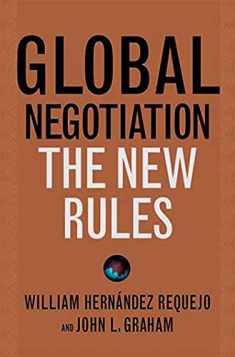
The Handbook of Negotiation and Culture (Stanford Business Books (Hardcover))
Book details
Summary
Description
In the global marketplace, negotiation frequently takes place across cultural boundaries, yet negotiation theory has traditionally been grounded in Western culture. This book, which provides an in-depth review of the field of negotiation theory, expands current thinking to include cross-cultural perspectives. The contents of the book reflect the diversity of negotiation―research-negotiator cognition, motivation, emotion, communication, power and disputing, intergroup relationships, third parties, justice, technology, and social dilemmas―and provides new insight into negotiation theory, questioning assumptions, expanding constructs, and identifying limits not apparent from working exclusively within one culture.
The book is organized in three sections and pairs chapters on negotiation theory with chapters on culture. The first part emphasizes psychological processes―cognition, motivation, and emotion. Part II examines the negotiation process. The third part emphasizes the social context of negotiation. A final chapter synthesizes the main themes of the book to illustrate how scholars and practitioners can capitalize on the synergy between culture and negotiation research.


We would LOVE it if you could help us and other readers by reviewing the book
Book review




